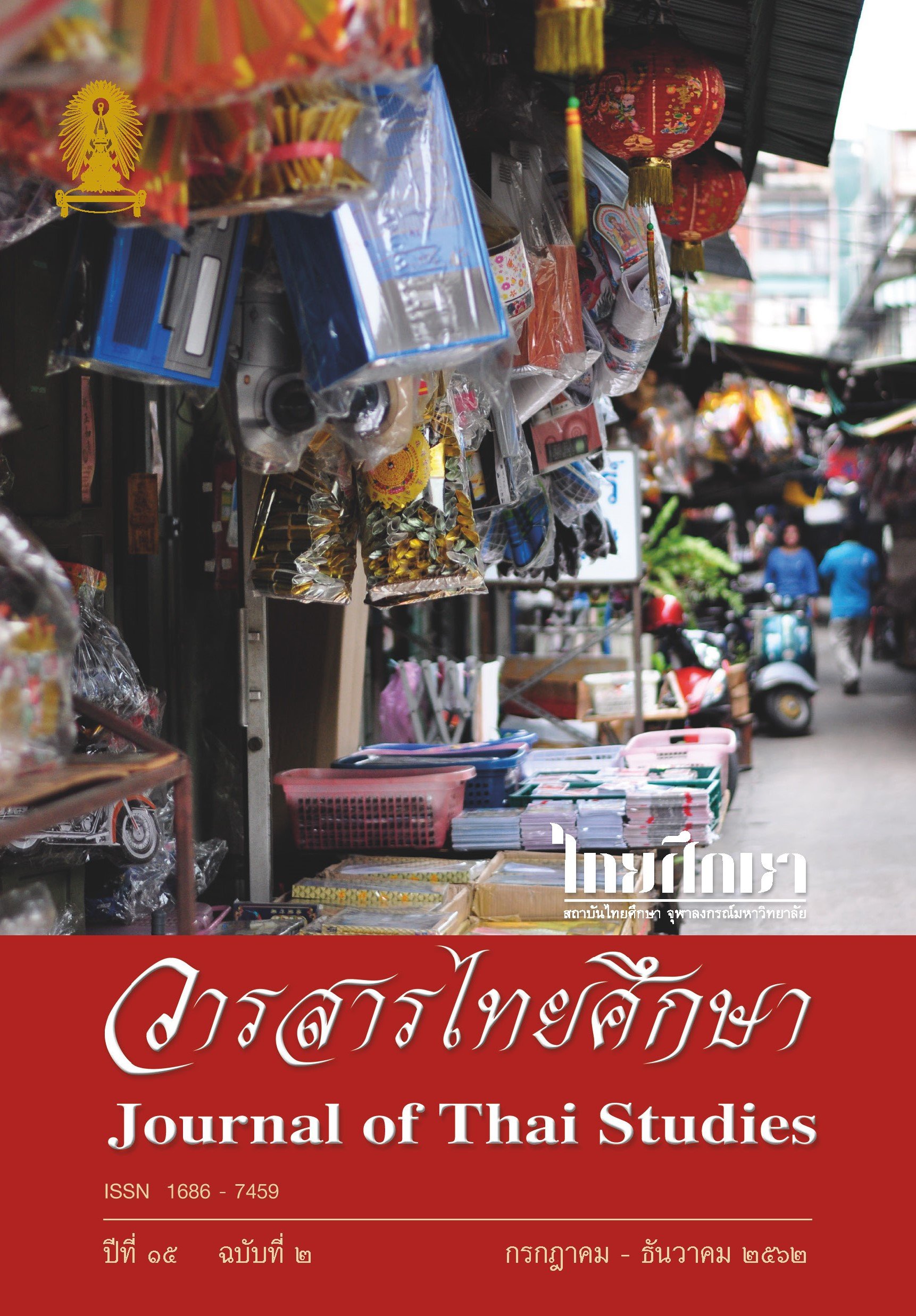Edutainment as a Writing Genre: A Case Study of the Young-Adult Documentary Fiction “We Can Transform” by Captain Thitima Changphoom
Main Article Content
Abstract
This article aims to detail a study of the young-adult documentary book entitled “We Can Transform”, which was written by Captain Thitima Changpoom. The purpose of this study is two-fold: to investigate the author’s writing techniques and to explore the book’s values.
The findings reveal that the author adopted nine literary writing techniques to seize the reader’s attention. Such techniques include the name of the title and use of plots, themes, characters, setting and tone, writing style (language arts) and illustration. With respect to the book’s values, it was found that this documentary book offers significant value to the reader in four aspects: language value, and values in enhancing the reader’s intellect, personality and social development. It might be concluded that “We Can Tranform” is a new type of documentary fiction or edutainment literary genre that manages to blend knowledge and entertainment and meet the needs of those who seek the pleasure of reading while simultaneously gaining the knowledge that the author aims to provide.
Downloads
Article Details

This work is licensed under a Creative Commons Attribution-NonCommercial-NoDerivatives 4.0 International License.
Journal of Thai studies is licensed under a Creative Commons Attribution-Noncommercial-NoDerivatives4.0 Intenational (CC BY-NC-ND 4.0) licence, unless otherwise stated. Plese read our Policies page for more information on Open Access, copyright and permissions.
References
Baikachuyee, J. (1999). Theknik kan khian nangsue samrap dek. [Techniques of Writing Children’s Books]. Bangkok: Department of Academic Affairs, Ministry of Education.
Changphoom, T, Captain. (2010). Phuakrao plaeng rang dai. [We Can Transform]. Bangkok: Nanmee Book Publication.
Chupongpairote, K. (2000). Kan sangsan nangsue dek. [Creating Children’s Books]. Bangkok: Thairath Foundation.
Education, Ministry. (1998). Khumue kan khian rueang Banthoeng khadi lae sarakhadi samrap dek. [A Handbook of Writing Fiction and Nonfiction for Children]. Bangkok: Kurusapa Printing Ladphrao.
Jarunat, S. (1999). Khumue kan khian rueang banthoeng khadi lae sarakhadi samrap dek. [A Handbook of Writing Fiction and Nonfiction]. Bangkok: Department of Academic Affairs, Ministry of Education.
Khowdee, S. (2012). Rai ngan wichai chabap sombun rueang Wikhro sarakhadi samrap yaowachon rueang “Phuakrao plaeng rang dai”. [An Analysis of Children’s Nonfiction “Phuakrao Plaeng Rang Dai”]. Ubonratchathanee: Faculty of Liberal Arts.
Kongthong, P. (1989). “Naeothang kan son kan khian sarakhadi” nai ekkasan prakopkan sammana rueang naeothang kan son kan. [“Guidelines for Teaching Documentary Writing in Seminar Materials” in Guidelines for Teaching Writing at Higher Education]. Bangkok: University of Thai Chamber of Commerce.
Lohitkun, T. (2001). Kwa cha ma pen sarakhadi. [Before becoming a Documentary]. (2nd ed.). Bangkok: Praew Publishing.
Phakdiphasuk, S. (2015). Kan phasomphasan watthanatham nai nangsue nithan naeo edutainment [sara banthoeng] phasa thai nai rueang lao phuenban thai nai lok thi plianplaeng. [Thai Folktales in a Changing World]. (p.159). Na Talang, S. (ed.). Bangkok: Princess Maha Chakri Sirindhorn Anthropology Centre.
Sangkhaphanthanon, T. (1999). Wannakam wichan. [Literary Criticism]. Bangkok: Nakorn.
Sirisingha, W. (1994). Kan sangsan wannakam samrap dek lae yaowachon. [The Creation of Literature for Children and Youth]. Bangkok: Suwiriyasarn.
Tailangkha, I. (2000). Sat lae sin haeng kan lao rueang. [Science and the Art of Storytelling]. Bangkok: Department of Literature.


